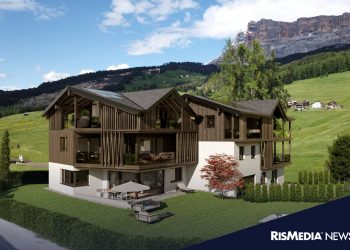Your attic can serve many different roles in your home. Families often place boxes of old clothing, books and holiday decorations in the attic and rarely go up there. But, in some cases, an attic can be so much more than just storage space. If you need additional living space, converting your attic space might be the solution, but there are potential problems to consider. Explore the pros and cons of converting your attic space before taking on your next home renovation project.
Pros for Converting Your Attic
Converting the attic to add another bedroom, or for creating a home office, would most likely cost less than building an addition or buying a larger home. Depending on the size of the attic, you may even be able to add two new bedrooms for your growing family or create a suite with a bedroom and a bathroom.
This could also help with resale value. According to the “Remodeling Impact Report” from the National Association of REALTORS®, the national median cost of an attic bedroom remodel is $75,000—you could recover 53% of that when selling, according to research.
If you need a quiet place to work from home, the attic could be an ideal location. Since it’s physically separated from the main living area on the first floor, you could have peace and quiet even if other family members were watching TV or playing downstairs.
The extra square footage of usable space could increase your home’s value. If you decide to sell your home in the future, families with multiple children or someone who works from home and is looking for a dedicated office space will appreciate the additional room.
If you built an addition into the yard, your family would have less space to relax outdoors, and your kids would have less room to play. Converting the attic wouldn’t affect the overall footprint of the house, so you wouldn’t lose any yard space.
Attic Conversion Cons
If you converted your attic to a bedroom or home office, you wouldn’t be able to use this space for storage. For a home that doesn’t feature enough room in the closets, basement or garage, you may need to get rid of some belongings or rent a storage unit. Ask yourself if these additional costs would be worth it.
You would have to hire a contractor to convert the attic and pay for proper insulation. If you plan to make this renovation, you will need to apply for and pay the cost for the necessary permits, which can quickly add up.
If the attic ceiling is low, a conversion may not be a good idea. With limited space, it can become difficult for an adult to walk through this space comfortably. If your house has a sloped roof, converting the attic will most likely leave you with a low space at one or both ends. You might not be able to place furniture there, although you could use those areas for storage.
If you decide to make this renovation and continue to live in your home while it is being converted, you may experience disruptions for weeks, even months, depending on the season. From noise to dust, even the constant rotation of workers coming and going, you may experience an interference in your routine, especially with young children and even pets. Also, if you work from home, this can quickly become a daily disturbance, especially if you have constant meetings and phone calls.
Should You Convert Your Attic Space?
An attic conversion is not always possible due to the pitch of the roof and may need to be modified to support the additional weight of drywall, plumbing and electrical wiring. Consider how this space could be used and the value that it may add to your home if you decide to sell in the future. Be sure to pay attention to long-term costs, disruptions and storage space before committing to this renovation. Ask a contractor or engineer for advice and be sure to research local building codes and permit requirements.
Agents, want more tips like these to share with your existing and prospective clients? Check out our automated social media marketing platform, ACESocial.












